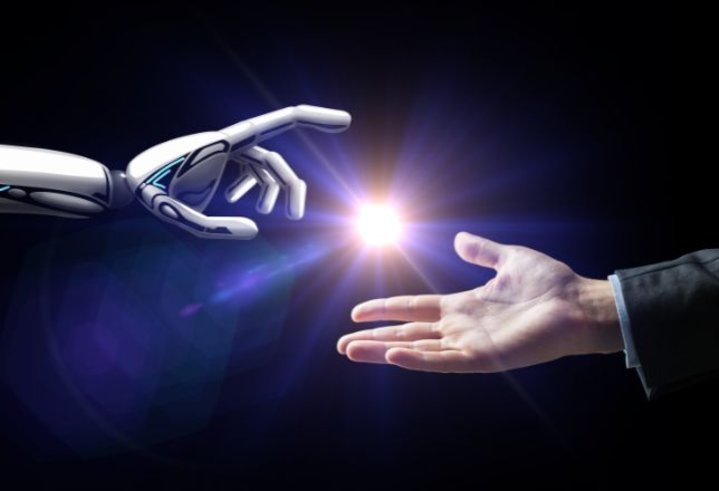The "Human" Skills AI Has Yet to Replace

With the waves artificial intelligence (AI) has made in 2023 – particularly through the rise of programs such as ChatGPT and Midjourney – it’s safe to say the software is here to stay. Its presence isn’t without its detractors, however, as plenty of workers have raised concerns over its potential displacement of lower-skilled jobs. The technology is expected to cause as much disruption as it will innovation among the Australian labour force, though there is a certain group of skills it likely won’t replace: those involving the “human” touch.
Below, we explore the impact of AI on Australia’s workforce, and the specific traits it may have yet to replicate.
How AI has impacted the Australian job market
AI has already planted its roots in the Australian workplace, with millions of workers currently taking advantage of its features. Statistics reveal that nearly one in five Australian employees (equivalent to 2.3 million people) are actively using tools such as ChatGPT to enhance their job performance. The younger demographics seem to be leading this trend, with 23% of Gen Z and 19% of millennials more inclined towards the use of AI.
Its benefits are plenty, with increased productivity being a major one. AI is often favoured for its ability to handle mundane and repetitive tasks, allowing professionals to redirect their focus towards the more complex and creative aspects of their roles. As a result, workplaces are able to foster greater efficiency and innovation. The technology is also known to analyse data at a faster and more accurate rate than humans, helping businesses in their data-driven decisions. Additionally, while it’s often raised concerns about job displacement, AI is expected to give rise to a vast array of new roles and opportunities – including positions such as AI trainers, ethical AI specialists, and AI system auditors to help oversee its ongoing development and maintenance.
As this sector continues to evolve, upskilling and retraining has become a much-discussed priority among current employees. Staying ahead of the curve will require continuous learning and adaptation, and individuals are recommended to invest in their education and professional development to keep their skills relevant and competitive on the job market.
The skills AI has yet to “replace”
While AI-related discussions often focus on the skills it can replicate, there are still a few human-centric traits the technology will struggle to displace. These include:
Empathy and care
Empathy, care, and support currently stand as quintessential human qualities that AI will likely find challenging to replicate authentically. While AI systems can be programmed to recognise and respond to certain emotional cues, the nuanced understanding of human emotions, context, and the ability to build genuine bonds remains distinctly human attributes. It involves a deep comprehension of another person’s feelings – a skill that’s well beyond the scope of algorithmic processing (for now).
In community services, for instance, the compassionate care provided by human professionals goes beyond merely providing medication, physical support, and assistive equipment. It also involves a holistic understanding of the patient’s emotional state; offering comfort, reassurance, and understanding when needed. Similarly, in customer service, the ability to truly empathize with a customer's concerns and provide personalized solutions is a realm where human agents excel. AI chatbots may be able to address routine queries efficiently, but the intelligence required for navigating complex and emotionally-charged situations is a skill deeply ingrained in human interaction.
Creative and innovative thinking
AI’s ability to process vast amounts of data and identify patterns has helped platforms such as ChatGPT and Dall-E successfully replicate specific writing or visual art styles. This, of course, has led to often heated discussions around AI’s potential to “replace” artists. However, the essence of creativity lies in our exclusively human ability to generate novel ideas and make connections that transcend conventional frameworks. We have the capacity to draw from own diverse experiences and emotions, helping us create unique solutions and groundbreaking concepts. AI has yet to form this ability; at the moment, it can only draw from ideas that already exist.
Artistic fields aside, this also applies to the field of business – where human creativity plays a vital role in problem-solving and ideation. AI may be able to optimise processes and suggest improvements based on historical data, but only humans are able to craft entirely new business strategies, product concepts, or marketing approaches that require dynamic thinking and intuition.
Manual dexterity
Hands-on expertise remains a critical aspect of our physical capabilities, particularly in specialised trade professions such as plumbing, carpentry, and electrical work. These roles demand a unique combination of tactile sensitivity and dexterity that currently goes beyond what AI systems can perform. Electricians, for instance, leverage these skills to connect intricate components, navigate tight spaces, and troubleshoot issues with a fine attention to detail. Carpentry, too, relies heavily on the skilled hands of human artisans who can shape, join, and craft materials into intricate structures, adapting their techniques to the unique demands of each project.
Moreover, these trades typically involve problem-solving in real-world contexts, where unexpected challenges demand on-the-spot critical thinking and out-of-the-box solutions. Rare circumstances or problems (such as an unexpected wiring issue or dealing with irregular physical spaces) may prove difficult for the current state of AI to manage, given its limited database.
Leadership
Beyond the strategic decision-making processes that AI can replicate, leadership involves the complex interplay of emotional intelligence, interpersonal skills, and the ability to inspire and motivate diverse teams. This nuanced understanding of human dynamics is a key aspect people management that currently eludes AI technology.
Effective leaders can empathise well with their team members, fostering a positive and collaborative work environment. They also typically possess a broad range of interpersonal skills, including conflict resolution, communication, and the ability to build strong relationships. AI, lacking genuine emotions and self-awareness, currently struggles to interpret and respond appropriately to the subtle nuances of human interaction, making it challenging to build the trust and rapport essential for successful leadership.
Hospitality
Finally, this inability to comprehend complex human emotions will make it hard for current AI to replace “people” skills in the hospitality sector. The heart of this field lies in its ability to create a warm, welcoming atmosphere that goes beyond efficient service – often involving the genuine connection formed between hosts and guests. Successful hospitality also relies on one’s ability to anticipate the individual preferences of their customers, as well as understand their unique needs or concerns.
For example, a restaurant server may remember their regular customer’s favourite dish, or a hotel staff member may go the extra mile to ensure their guest feels valued. While AI can very well streamline certain aspects of hospitality; this ability to form authentic connections and engage in meaningful conversations is what grants the industry its memorable experiences, and remains firmly rooted in our exclusively human capacities for empathy, intuition, and social understanding.
Future-proofing your skills for the digital era
With its vast benefits and rapid evolution, artificial intelligence is likely not going anywhere. It may proceed to automate and render certain jobs obsolete, but as new ones crop up in their place, it’s important to keep your skills up-to-date.
Upskilled offers a wide variety of online courses in some of IT’s most thriving sectors – including qualifications in programming, web development, and even automation test engineering. Students can arm themselves with the digital skills of the future, ensuring they’re well-equipped to handle the higher-level tasks and processes AI has yet to overtake.
Alternatively, individuals can also tap into their people-centric skills by exploring our various programs in community services, including in-demand sectors such as counselling and aged care. These fields are rife with the need for “human” soft skills, an aspect machines have yet to truly replicate.
Stay ahead of the curve in our current digital landscape, and enquire with us on a course today.


)
)

